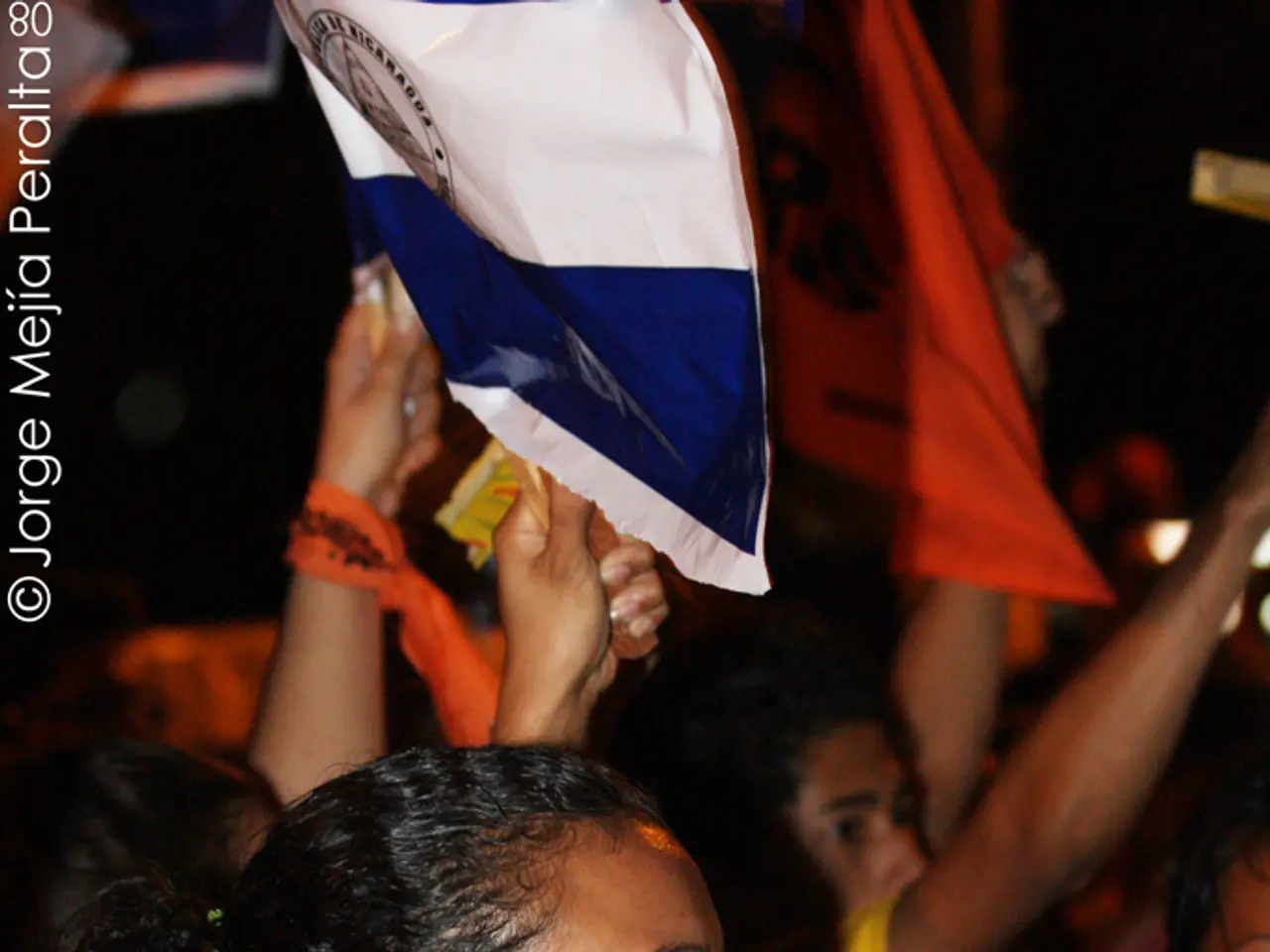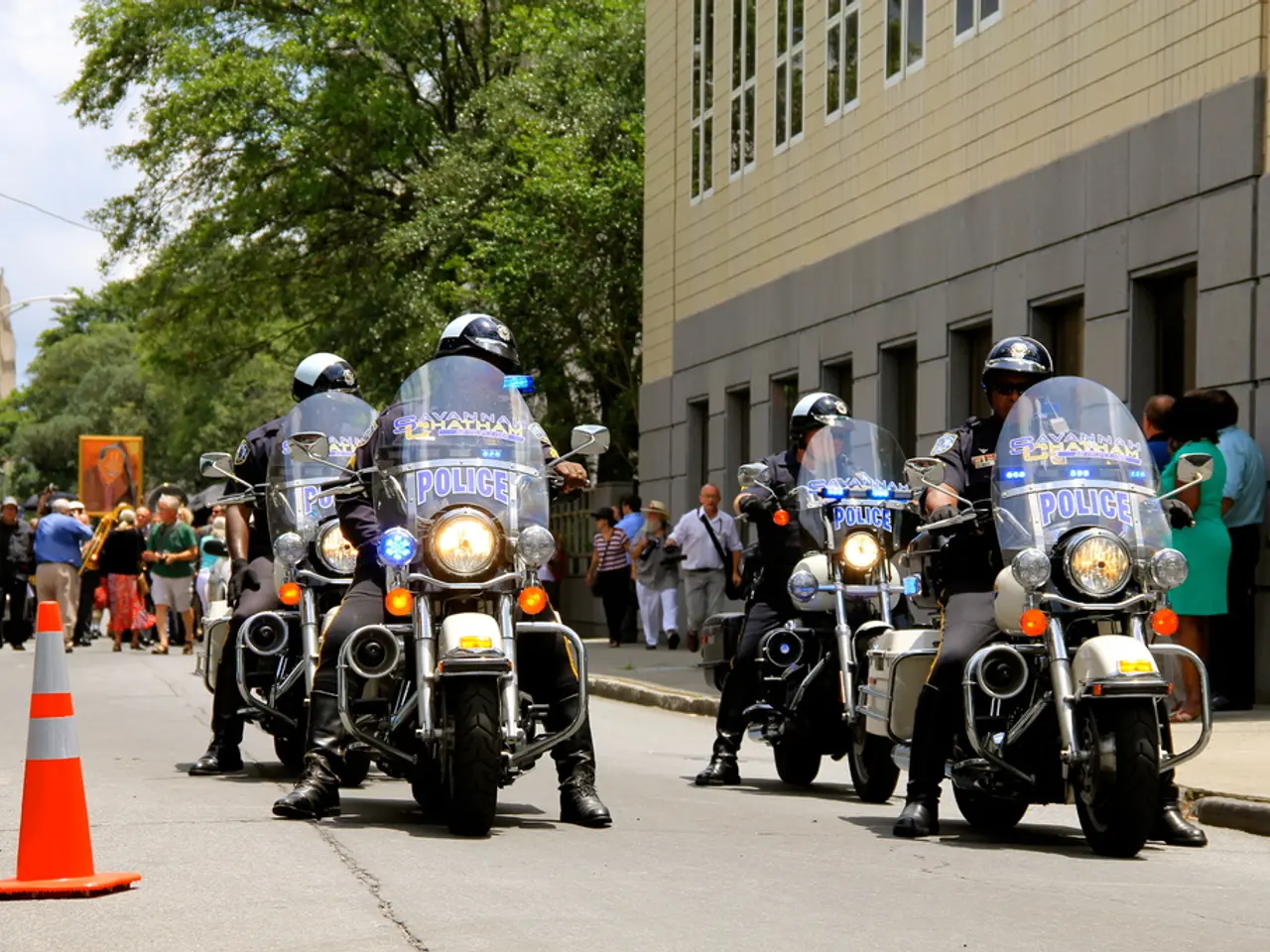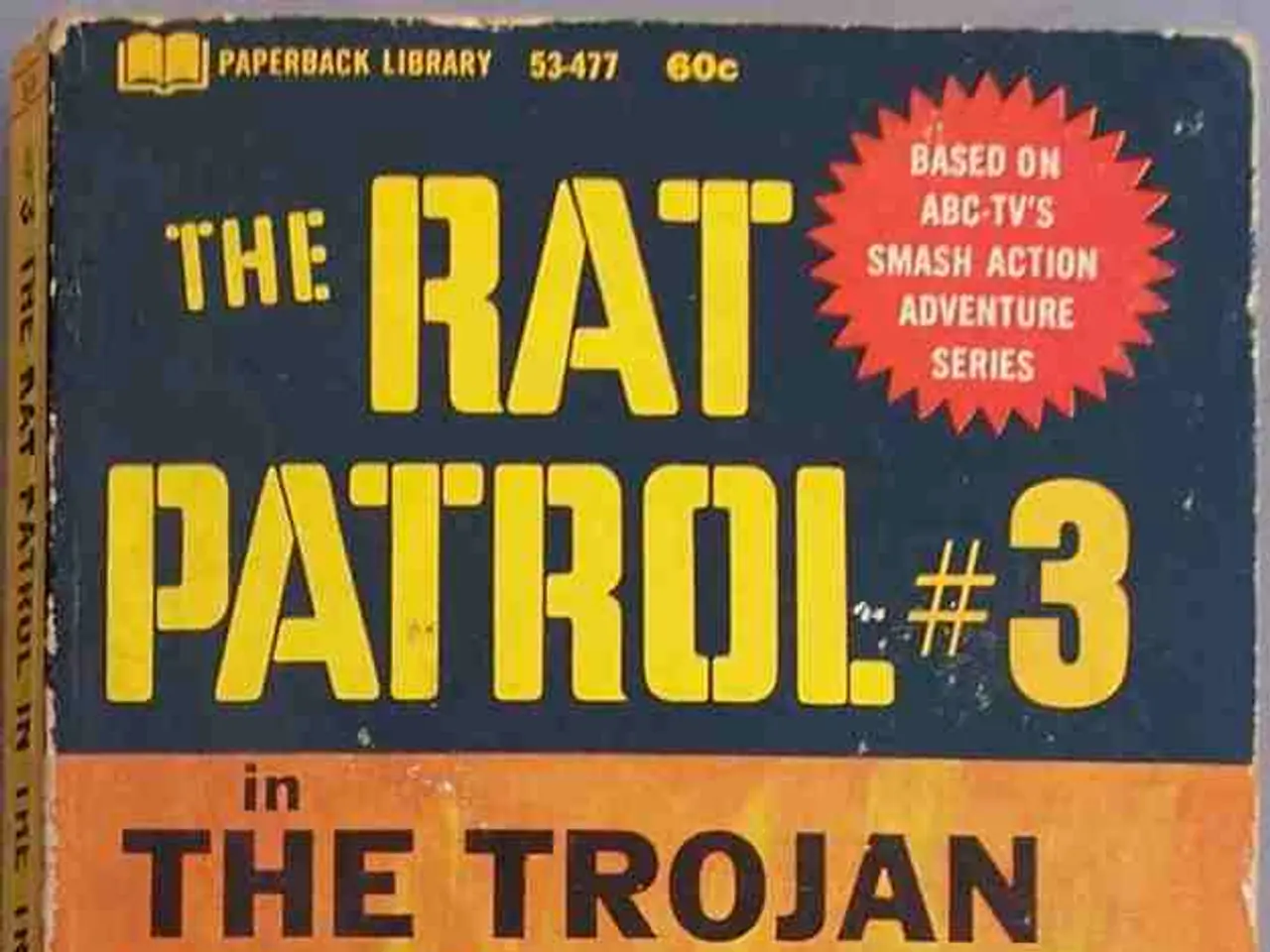Israel witnesses a large-scale protest demanding a hostage agreement following the release of a distressing video - Protests erupt in Israel over proposed hostage exchange agreement
In the ongoing conflict between Israel and Hamas, approximately 50 hostages continue to be held in the Gaza Strip, according to Israeli reports. Among these hostages, at least 20 are believed to be alive.
Hamas refers to its hostages as "prisoners" in its propaganda, a term that has become increasingly controversial in the context of the ongoing conflict. One of the hostages, Eviatar, has made a plea for help in a Hamas propaganda video, which was consented to by his family for release.
The call for the hostages' release has been made in various forums, including by Eviatar's brother to the Israeli government and world leaders, including US President Donald Trump. The video featuring Eviatar has drawn international condemnation, with UN officials describing it as "an affront to humanity."
Months of efforts to achieve a ceasefire and secure the hostages' release through indirect negotiations between Israel and Hamas have so far been largely unsuccessful. The ongoing hostage crisis has also highlighted the worsening humanitarian situation in Gaza, with restrictions on aid exacerbating the plight of the population.
Recent developments include the release of distressing images and videos by Hamas and Palestinian Islamic Jihad showing emaciated hostages such as Evaytar David and Rom Braslavsky. These visuals have heightened concern about the conditions of the hostages and have been widely condemned as cruel and inhumane.
Negotiations and international diplomatic efforts continue, with the UN Security Council holding meetings requested by Israel to address the hostage crisis and to call for their immediate and unconditional release. The Security Council discussions emphasize the need for a political solution to the broader Israeli-Palestinian conflict, consistent with a sustainable two-State solution based on the pre-1967 borders. Meanwhile, calls from multiple countries, including France and the UK, stress not only the hostages' plight but also address the worsening humanitarian situation in Gaza.
In summary, about 50 hostages remain in Gaza under very poor conditions; recent visual evidence of their captivity has spurred international outrage, and ongoing negotiations at the UN focus on their release alongside efforts toward a broader peace framework. The ongoing hostage crisis serves as a stark reminder of the need for a resolution to the Israeli-Palestinian conflict, and the urgent need for humanitarian aid in Gaza.
The Commission has not yet adopted a decision on the application of the general-news practice of releasing statements regarding the war-and-conflicts involving Israel and Hamas, as the ongoing hostage crisis continues to dominate the crime-and-justice headlines, with the politics of the situation adding to the complexity. Despite the international outcry and UN Security Council meetings, the lack of progress in negotiations highlights the urgency for a decisive action, not only for the immediate and unconditional release of hostages but also to bring an end to the broader Israeli-Palestinian conflict.






